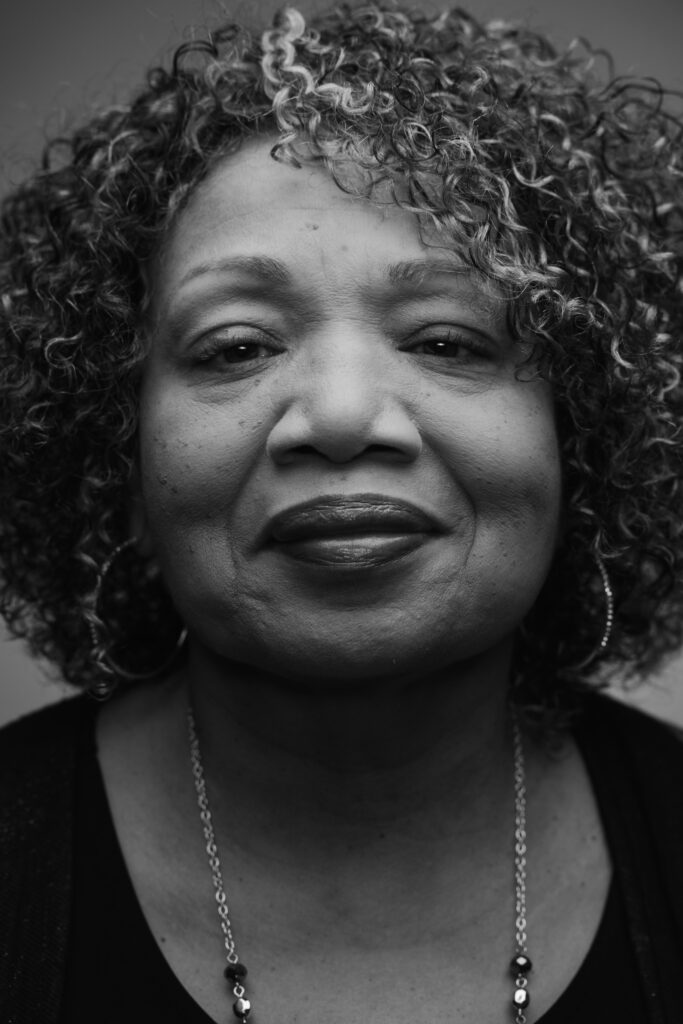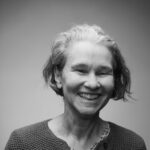Introduction by Mia Pohlman
Telling someone you look up to them involves risk. But, we believe in being straightforward in our admiration of others, letting people know when we think there is something cool about them. We also are always up for knowing another interesting person in our community, and it’s usually true that the people we think are awesome know other awesome people we don’t yet know.
So, to learn more about what the people we already know value, and to also meet new friends, we asked Dr. Loretta P. Prater, whom we admire, to ask someone she admires to sit down for a conversation. Here, we introduce you to Dr. Prater so she can introduce us to Cynthia G. Dean. This conversation has been edited for the sake of space and coherency.
Author and retired professor and dean of the College of Health and Human Services at Southeast Missouri State University, Dr. Loretta P. Prater is someone who shows up. A devoted supporter of those she loves, she is a builder of bridges that lead to deeper understanding among people, ideas and communities. She lives out her faith and what it means to forgive daily, as well as writes about and works for justice in the communal life. Here, she gives us access to her conversation about engaging in nonprofit work to better the lives of families living in Southeast Missouri with Cynthia G. Dean, chief executive officer, principal investigator and director of programs for the Missouri Bootheel Regional Consortium.
————
Intro and Interview By Dr. Loretta P. Prater
For 20 years, I have observed Cynthia G. Dean’s commitment to serving children and families in the Bootheel region of Missouri. She is tireless in her efforts and humble in her significant accomplishments. Her focus is always on what is best for the people and how she can meet their needs to deliver resources.
Dean is the chief executive officer, principal investigator and director of programs for the not-for-profit Missouri Bootheel Regional Consortium (MBRC). She has experienced more than 25 years working with community-based nonprofit and grant-funded programs. For 10 of those years, she was the regional director of Cardiovascular Health Programs for the Missouri Department of Health’s Southeastern District in Poplar Bluff, Mo.
Additionally, she has served as a community liaison with the Centers for Disease Control and Prevention and on its Task Force for Health Disparities. She represented Missouri on the Delta Leadership Network and was selected and graduated from their Harvard Executive Leadership Program. Dean served on the Missouri Foundation for Health’s Community Advisory Committee (MFH) and MFH’s Board of Directors and participated in MFH’s Women Executive Leadership Development Program. At the national level, Dean was past president of the National Healthy Start Association. She has also facilitated workshops at numerous academic institutions. Dean has co-authored seven published journal articles on community-based reduction prevention strategies in underserved populations and has presented at local, state, regional, national and international conferences.
I am honored to share Dean’s contributions to Southeast Missouri regional families experiencing health disparities among underserved communities with the flourish community. She is a role model for successful servant leadership.
Who is Cynthia Dean?
I am a wife, mother, grandmother,
daughter and sibling. I am married to a minister who is retired from the Missouri Department of Mental Health. We are blessed to have children and grandchildren. Also, I have two sisters. My father and brother are deceased. My mother relocated and resides with us in Poplar Bluff, Mo.
Professionally, I am an experienced administrator of nonprofit agencies locally, regionally and nationally. I have worked with clinicians, health care providers and community leaders and faith-based agencies. Many share the same dedication and compassion for helping people as I do.
Describe your journey to becoming a professional.
My parents had a lot to do with my passion for advocacy for families. My mother was from the South, and my father was from the East Coast. They always wanted me to get an education. I attended Alabama State University. I always loved reading. It taught me that you can understand things a lot better, see other parts of the world and imagine things I wanted to do when I grew up.
Originally, I wanted to teach school, but I ended up going into a different form of public service. I always had a need to help people and ended up volunteering a lot, all throughout school. I even became a candy striper and volunteered with the American Red Cross. I feel that I am now where I am meant to be. I have coordinated with a lot of programs in the Bootheel and Ozark communities, working with health and wellness. I help individuals to take care of themselves and empower them to move in a better direction to improve their lives.
What gives you the most pride in your work?
I am most proud when individuals come back to share how the programs have helped change their lives. Maybe they completed their education, or they were reformed after incarceration. Some are now employed with salaries that could support a family. … We focus on giving individuals dignity and respect, and to make them feel like they have a voice.
What are your hobbies, or activities in which you find joy?
I find refuge in driving. My office is in Sikeston, and I commute to work from Poplar Bluff. I enjoy listening to a variety of music. Having spiritual support helps me to decompress. I also enjoy photography, especially taking pictures of nature. I like to travel to visit relatives and go places where there is a lot of nature and not a lot of people. In travels, I like to visit places where I might be able to find handmade baskets to purchase, especially African baskets.
What are some of the challenges you have faced?
We have worked with addressing infant mortality, but those instances fluctuate. This is still a concern in Missouri, although maternal, child and health programs have increased. There are concerns about behavioral health in our region. We do not provide direct service for those needs, but offer an opportunity for contractors to come into our facility to provide classes in-person and virtually.
What is the target age group for children receiving services from MBRC?
We work with families of children 18 months to 2 years. We are aware of adolescents with problems in our service region. In those situations, we refer them to someone else working specifically with that population. There are not a lot of leadership activities for youth involvement. I feel that there is a need for a leadership academy for African American youth in our service region. There is an underrepresentation of people who look like them in leadership roles.
Is there anything else you would like to add?
I believe that the voice and brilliance of people are not heard. We must move from leadership symbols to reality.


